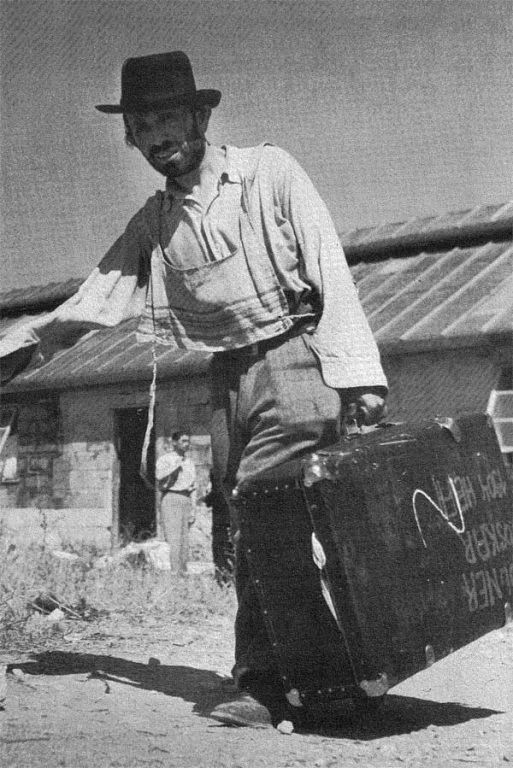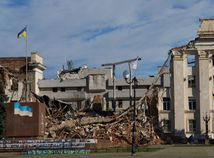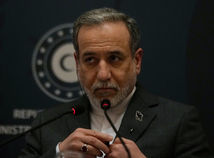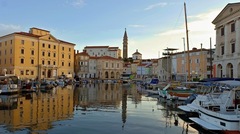exile is strangely compelling to think about but terrible to experience. It is the unhealable rift forced between a human being and a native place, between the self and its true home: its essential sadness can never be surmounted. And while it is true that literature and history contain heroic, romantic, glorious, even triumphant episodes in an exile’s life, these are no more than efforts meant to overcome the crippling sorrow of estrangement. The achievements of exile are permanently undermined by the loss of something left behind for ever.
But if true exile is a condition of terminal loss, why has it been transformed so easily into a potent, even enriching, motif of modern culture? We have become accustomed to thinking of the modern period itself as spiritually orphaned and alienated, the age of anxiety and estrangement. Nietzsche taught us to feel uncomfortable with tradition, and Freud to regard domestic intimacy as the polite face painted on patricidal and incestuous rage. Modern Western culture is in large part the work of exiles, émigrés, refugees. In the United States, academic, intellectual and aesthetic thought is what it is today because of refugees from Fascism, Communism and other regimes given to the oppression and expulsion of dissidents. The critic George Steiner has even proposed the perceptive thesis that a whole genre of twentieth-century Western literature is ‘extraterritorial’, a literature by and about exiles, symbolizing the age of the refugee. Thus Steiner suggests
It seems proper that those who create art in a civilization of quasi-barbarism, which has made so many homeless, should themselves be poets unhoused and wanderers across language. Eccentric, aloof, nostalgic, deliberately untimely….
In other ages, exiles had similar cross-cultural and transnational visions, suffered the same frustrations and miseries, performed the same elucidating and critical tasks – brilliantly affirmed, for instance, in E. H. Carr’s classic study of the nineteenth-century Russian intellectuals clustered around Herzen, The Romantic Exiles. But the difference between earlier exiles and those of our own time is, it bears stressing, scale: our age – with its modern warfare, imperialism and the quasi-theological ambitions of totalitarian rulers – is indeed the age of the refugee, the displaced person, mass immigration.
Against this large, impersonal setting, exile cannot be made to serve notions of humanism. On the twentieth-century scale, exile is neither aesthetically nor humanistically comprehensible: at most the literature about exile objectifies an anguish and a predicament most people rarely experience at first hand; but to think of the exile informing this literature as beneficially humanistic is to banalize its mutilations, the losses it inflicts on those who suffer them, the muteness with which it responds to any attempt to understand it as ‘good for us’. Is it not true that the views of exile in literature and, moreover, in religion obscure what is truly horrendous: that exile is irremediably secular and unbearably historical; that it is produced by human beings for other human beings; and that, like death but without death’s ultimate mercy, it has torn millions of people from the nourishment of tradition, family and geography?
To see a poet in exile – as opposed to reading the poetry of exile – is to see exile’s antinomies embodied and endured with a unique intensity. Several years ago I spent some time with Faiz Ahmad Faiz, the greatest of contemporary Urdu poets. He was exiled from his native Pakistan by Zia’s military regime, and found a welcome of sorts in strife-torn Beirut. Naturally his closest friends were Palestinian, but I sensed that, although there was an affinity of spirit between them, nothing quite matched – language, poetic convention, or life history. Only once, when Eqbal Ahmad, a Pakistani friend and a fellow exile, came to Beirut, did Faiz seem to overcome his sense of constant estrangement. The three of us sat in a dingy Beirut restaurant late one night, while Faiz recited poems. After a time, he and Eqbal stopped translating his verses for my benefit, but as the night wore on it did not matter. What I watched required no translation: it was an enactment of a homecoming expressed through defiance and loss, as if to say, ‘Zia, we are here.’ Of course Zia was the one who was really at home and who would not hear their exultant voices.
Rashid Hussein was a Palestinian. He translated Bialik, one of the great modern Hebrew poets, into Arabic, and Hussein’s eloquence established him in the post-1948 period as an orator and nationalist without peer. He first worked as a Hebrew language journalist in Tel Aviv, and succeeded in establishing a dialogue between Jewish and Arab writers, even as he espoused the cause of Nasserism and Arab nationalism. In time, he could no longer endure the pressure, and he left for New York. He married a Jewish woman, and began working in the PLO office at the United Nations, but regularly outraged his superiors with unconventional ideas and utopian rhetoric. In 1972 he left for the Arab world, but a few months later he was back in the United States: he had felt out of place in Syria and Lebanon, unhappy in Cairo. New York sheltered him anew, but so did endless bouts of drinking and idleness. His life was in ruins, but he remained the most hospitable of men. He died after a night of heavy drinking when, smoking in bed, his cigarette started a fire that spread to a small library of audio cassettes, consisting mostly of poets reading their verse. The fumes from the tapes asphyxiated him. His body was repatriated for burial in Musmus, the small village in Israel where his family still resided.
These and so many other exiled poets and writers lend dignity to a condition legislated to deny dignity – to deny an identity to people. From them, it is apparent that, to concentrate on exile as a contemporary political punishment, you must therefore map territories of experience beyond those mapped by the literature of exile itself. You must first set aside Joyce and Nabokov and think instead of the uncountable masses for whom UN agencies have been created. You must think of the refugee-peasants with no prospect of ever returning home, armed only with a ration card and an agency number. Paris may be a capital famous for cosmopolitan exiles, but it is also a city where unknown men and women have spent years of miserable loneliness: Vietnamese, Algerians, Cambodians, Lebanese, Senegalese, Peruvians. You must think also of Cairo, Beirut, Madagascar, Bangkok, Mexico City. As you move further from the Atlantic world, the awful forlorn waste increases: the hopelessly large numbers, the compounded misery of ‘undocumented’ people suddenly lost, without a tellable history. To reflect on exiled Muslims from India, or Haitians in America, or Bikinians in Oceania, or Palestinians throughout the Arab world means that you must leave the modest refuge provided by subjectivity and resort instead to the abstractions of mass politics. Negotiations, wars of national liberation, people bundled out of their homes and prodded, bussed or walked to enclaves in other regions: what do these experiences add up to? Are they not manifestly and almost by design irrecoverable?
We come to nationalism and its essential association with exile. Nationalism is an assertion of belonging in and to a place, a people, a heritage. It affirms the home created by a community of language, culture and customs; and, by so doing, it fends off exile, fights to prevent its ravages. Indeed, the interplay between nationalism and exile is like Hegel’s dialectic of servant and master, opposites informing and constituting each other. All nationalisms in their early stages develop from a condition of estrangement. The struggles to win American independence, to unify Germany or Italy, to liberate Algeria were those of national groups separated – exiled – from what was construed to be their rightful way of life. Triumphant, achieved nationalism then justifies, retrospectively as well as prospectively, a history selectively strung together in a narrative form: thus all nationalisms have their founding fathers, their basic, quasi-religious texts, their rhetoric of belonging, their historical and geographical landmarks, their official enemies and heroes. This collective ethos forms what Pierre Bourdieu, the French sociologist, calls the habitus, the coherent amalgam of practices linking habit with inhabitance. In time, successful nationalisms consign truth exclusively to themselves and relegate falsehood and inferiority to outsiders (as in the rhetoric of capitalist versus communist, or the European versus the Asiatic).
And just beyond the frontier between ‘us’ and the ‘outsiders’ is the perilous territory of not-belonging: this is to where in a primitive time peoples were banished, and where in the modern era immense aggregates of humanity loiter as refugees and displaced persons.
Nationalisms are about groups, but in a very acute sense exile is a solitude experienced outside the group: the deprivations felt at not being with others in the communal habitation. How, then, does one surmount the loneliness of exile without falling into the encompassing and thumping language of national pride, collective sentiments, group passions? What is there worth saving and holding on to between the extremes of exile on the one hand, and the often bloody-minded affirmations of nationalism on the other? Do nationalism and exile have any intrinsic attributes? Are they simply two conflicting varieties of paranoia?
These are questions that cannot ever be fully answered because each assumes that exile and nationalism can be discussed neutrally, without reference to each other. They cannot be. Because both terms include everything from the most collective of collective sentiments to the most private of private emotions, there is hardly language adequate for both. But there is certainly nothing about nationalism’s public and all-inclusive ambitions that touches the core of the exile’s predicament.
Because exile, unlike nationalism, is fundamentally a discontinuous state of being. Exiles are cut off from their roots, their land, their past. They generally do not have armies or states, although they are often in search of them. Exiles feel, therefore, an urgent need to reconstitute their broken lives, usually by choosing to see themselves as part of a triumphant ideology or a restored people. The crucial thing is that a state of exile free from this triumphant ideology – designed to reassemble an exile’s broken history into a new whole – is virtually unbearable, and virtually impossible in today’s world. Look at the fate of the Jews, the Palestinians and the Armenians.
Noubar is a solitary Armenian, and a friend. His parents had to leave Eastern Turkey in 1915, after their families were massacred: his maternal grandfather was beheaded. Noubar’s mother and father went to Aleppo, then to Cairo. In the middle-sixties, life in Egypt became difficult for non-Egyptians, and his parents, along with four children, were taken to Beirut by an international relief organization. In Beirut, they lived briefly in a pension and then were bundled into two rooms of a little house outside the city. In Lebanon, they had no money and they waited: eight months later, a relief agency got them a flight to Glasgow. And then to Gander. And then to New York. They rode by Greyhound bus from New York to Seattle: Seattle was the city designated by the agency for their American residence. When I asked, ‘Seattle?’, Noubar smiled resignedly, as if to say better Seattle than Armenia – which he never knew, or Turkey where so many were slaughtered, or Lebanon where he and his family would certainly have risked their lives. Exile is sometimes better than staying behind or not getting out: but only sometimes.

Because nothing is secure. Exile is a jealous state. What you achieve is precisely what you have no wish to share, and it is in the drawing of lines around you and your compatriots that the least attractive aspects of being in exile emerge: an exaggerated sense of group solidarity, and a passionate hostility to outsiders, even those who may in fact be in the same predicament as you. What could be more intransigent than the conflict between Zionist Jews and Arab Palestinians? Palestinians feel that they have been turned into exiles by the proverbial people of exile, the Jews. But the Palestinians also know that their own sense of national identity has been nourished in the exile milieu, where everyone not a blood-brother or sister is an enemy, where every sympathizer is an agent of some unfriendly power, and where the slightest deviation from the accepted group line is an act of the rankest treachery and disloyalty.
Perhaps this is the most extraordinary of exile’s fates: to have been exiled by exiles: to relive the actual process of uprooting at the hands of exiles. All Palestinians during the summer of 1982 asked themselves what inarticulate urge drove Israel, having displaced Palestinians in 1948, to expel them continuously from their refugee homes and camps in Lebanon. It is as if the reconstructed Jewish collective experience, as represented by Israel and modern Zionism, could not tolerate another story of dispossession and loss to exist alongside it – an intolerance constantly reinforced by the Israeli hostility to the nationalism of the Palestinians, who for forty-six years have been painfully reassembling a national identity in exile.
This need to reassemble an identity out of the refractions and discontinuities of exile is found in the earlier poems of Mahmud Darwish, whose considerable work amounts to an epic effort to transform the lyrics of loss into the indefinitely postponed drama of return. Thus he depicts his sense of homelessness in the form of a list of unfinished and incomplete things:
But I am the exile.
Seal me with your eyes.
Take me wherever you are–
Take me whatever you are.
Restore to me the colour of face
And the warmth of body
The light of heart and eye,
The salt of bread and rhythm,
The taste of earth…the Motherland.
Shield me with your eyes.
Take me as a relic from the mansion of sorrow.
Take me as a verse from my tragedy;
Take me as a toy, a brick from the house
So that our children will remember to return.
The pathos of exile is in the loss of contact with the solidity and the satisfaction of earth: homecoming is out of the question.
Joseph Conrad’s tale ‘Amy Foster’ is perhaps the most uncompromising representation of exile ever written. Conrad thought of himself as an exile from Poland, and nearly all his work (as well as his life) carries the unmistakable mark of the sensitive émigré’s obsession with his own fate and with his hopeless attempts to make satisfying contact with new surroundings. ‘Amy Foster’ is in a sense confined to the problems of exile, perhaps so confined that it is not one of Conrad’s best-known stories. This, for example, is the description of the agony of its central character, Yanko Goorall, an Eastern European peasant who, en route to America, is shipwrecked off the British coast:
It is indeed hard upon a man to find himself a lost stranger helpless, incomprehensible, and of a mysterious origin, in some obscure corner of the earth. Yet amongst all the adventurers shipwrecked in all the wild parts of the world, there is not one, it seems to me, that ever had to suffer a fate so simply tragic as the man I am speaking of, the most innocent of adventurers cast out by the sea….
Yanko has left home because the pressures were too great for him to go on living there. America lures him with its promise, though England is where he ends up. He endures in England, where he cannot speak the language and is feared and misunderstood. Only Amy Foster, a plodding, unattractive peasant girl, tries to communicate with him. They marry, have a child, but when Yanko falls ill, Amy, afraid and alienated, refuses to nurse him; snatching their child, she leaves. The desertion hastens Yanko’s miserable death, which like the deaths of several Conradian heroes is depicted as the result of a combination of crushing isolation and the world’s indifference. Yanko’s fate is described as ‘the supreme disaster of loneliness and despair’.
Yanko’s predicament is affecting: a foreigner perpetually haunted and alone in an uncomprehending society. But Conrad’s own exile causes him to exaggerate the differences between Yanko and Amy. Yanko is dashing, light and bright-eyed, whereas Amy is heavy, dull, bovine; when he dies, it is as if her earlier kindness to him was a snare to lure and then trap him fatally. Yanko’s death is romantic: the world is coarse, unappreciative; no one understands him, not even Amy, the one person close to him. Conrad took this neurotic exile’s fear and created an aesthetic principle out of it. No one can understand or communicate in Conrad’s world, but paradoxically this radical limitation on the possibilities of language doesn’t inhibit elaborate efforts to communicate. All of Conrad’s stories are about lonely people who talk a great deal (for indeed who of the great modernists was more voluble and ‘adjectival’ than Conrad himself?) and whose attempts to impress others compound, rather than reduce, the original sense of isolation. Each Conradian exile fears, and is condemned endlessly to imagine, the spectacle of a solitary death illuminated, so to speak, by unresponsive, uncommunicating eyes.
Exiles look at non-exiles with resentment. They belong in their surroundings, you feel, whereas an exile is always out of place. What is it like to be born in a place, to stay and live there, to know that you are of it, more or less for ever?
Although it is true that anyone prevented from returning home is an exile, some distinctions can be made between exiles, refugees, expatriates and émigrés. Exile originated in the age-old practice of banishment. Once banished, the exile lives an anomalous and miserable life, with the stigma of being an outsider. Refugees, on the other hand, are a creation of the twentieth-century state. The word ‘refugee’ has become a political one, suggesting large herds of innocent and bewildered people requiring urgent international assistance, whereas ‘exile’ carries with it, I think, a touch of solitude and spirituality.
Expatriates voluntarily live in an alien country, usually for personal or social reasons. Hemingway and Fitzgerald were not forced to live in France. Expatriates may share in the solitude and estrangement of exile, but they do not suffer under its rigid proscriptions. Émigrés enjoy an ambiguous status. Technically, an émigré is anyone who emigrates to a new country. Choice in the matter is certainly a possibility. Colonial officials, missionaries, technical experts, mercenaries and military advisers on loan may in a sense live in exile, but they have not been banished. White settlers in Africa, parts of Asia and Australia may once have been exiles, but as pioneers and nation-builders the label ‘exile’ dropped away from them.
Much of the exile’s life is taken up with compensating for disorienting loss by creating a new world to rule. It is not surprising that so many exiles seem to be novelists, chess players, political activists, and intellectuals. Each of these occupations requires a minimal investment in objects and places a great premium on mobility and skill. The exile’s new world, logically enough, is unnatural and its unreality resembles fiction. Georg Lukács, in Theory of the Novel, argued with compelling force that the novel, a literary form created out of the unreality of ambition and fantasy, is the form of ‘transcendental homelessness’. Classical epics, Lukács wrote, emanate from settled cultures in which values are clear, identities stable, life unchanging. The European novel is grounded in precisely the opposite experience, that of a changing society in which an itinerant and disinherited middle-class hero or heroine seeks to construct a new world that somewhat resembles an old one left behind for ever. In the epic there is no other world, only the finality of this one. Odysseus returns to Ithaca after years of wandering; Achilles will die because he cannot escape his fate. The novel, however, exists because other worlds may exist, alternatives for bourgeois speculators, wanderers, exiles.
No matter how well they may do, exiles are always eccentrics who feel their difference (even as they frequently exploit it) as a kind of orphanhood. Anyone who is really homeless regards the habit of seeing estrangement in everything modern as an affectation, a display of modish attitudes. Clutching difference like a weapon to be used with stiffened will, the exile jealously insists on his or her right to refuse to belong.
This usually translates into an intransigence that is not easily ignored. Wilfulness, exaggeration, overstatement: these are characteristic styles of being an exile, methods for compelling the world to accept your vision – which you make more unacceptable because you are in fact unwilling to have it accepted. It is yours, after all. Composure and serenity are the last things associated with the work of exiles. Artists in exile are decidedly unpleasant, and their stubbornness insinuates itself into even their exalted works. Dante’s vision in The Divine Comedy is tremendously powerful in its universality and detail, but even the beatific peace achieved in the Paradiso bears traces of the vindictiveness and severity of judgement embodied in the Inferno. Who but an exile like Dante, banished from Florence, would use eternity as a place for settling old scores?
James Joyce chose to be in exile: to give force to his artistic vocation. In an uncannily effective way – as Richard Ellmann has shown in his biography – Joyce picked a quarrel with Ireland and kept it alive so as to sustain the strictest opposition to what was familiar. Ellmann says that ‘whenever his relations with his native land were in danger of improving, [Joyce] was to find a new incident to solidify his intransigence and to reaffirm the Tightness of his voluntary absence.’ Joyce’s fiction concerns what in a letter he once described as the state of being ‘alone and friendless’. And although it is rare to pick banishment as a way of life, Joyce perfectly understood its trials.
But Joyce’s success as an exile stresses the question lodged at its very heart: is exile so extreme and private that any instrumental use of it is ultimately a trivialization? How is it that the literature of exile has taken its place as a topos of human experience alongside the literature of adventure, education or discovery? Is this the same exile that quite literally kills Yanko Goorall and has bred the expensive, often dehumanizing relationship between twentieth-century exile and nationalism? Or is it some more benign variety?
Much of the contemporary interest in exile can be traced to the somewhat pallid notion that non-exiles can share in the benefits of exile as a redemptive motif. There is, admittedly, a certain plausibility and truth to this idea. Like medieval itinerant scholars or learned Greek slaves in the Roman Empire, exiles – the exceptional ones among them – do leaven their environments. And naturally ‘we’ concentrate on that enlightening aspect of ‘their’ presence among us, not on their misery or their demands. But looked at from the bleak political perspective of modern mass dislocations, individual exiles force us to recognize the tragic fate of homelessness in a necessarily heartless world.
A generation ago, Simone Weil posed the dilemma of exile as concisely as it has ever been expressed. ‘To be rooted,’ she said, ‘is perhaps the most important and least recognized need of the human soul.’ Yet Weil also saw that most remedies for uprootedness in this era of world wars, deportations and mass exterminations are almost as dangerous as what they purportedly remedy. Of these, the state – or, more accurately, statism – is one of the most insidious, since worship of the state tends to supplant all other human bonds.
Weil exposes us anew to that whole complex of pressures and constraints that lie at the centre of the exile’s predicament, which, as I have suggested, is as close as we come in the modern era to tragedy. There is the sheer fact of isolation and displacement, which produces the kind of narcissistic masochism that resists all efforts at amelioration, acculturation and community. At this extreme the exile can make a fetish of exile, a practice that distances him or her from all connections and commitments. To live as if everything around you were temporary and perhaps trivial is to fall prey to petulant cynicism as well as to querulous lovelessness. More common is the pressure on the exile to join – parties, national movements, the state. The exile is offered a new set of affiliations and develops new loyalties. But there is also a loss – of critical perspective, of intellectual reserve, of moral courage.
It must also be recognized that the defensive nationalism of exiles often fosters self-awareness as much as it does the less attractive forms of self-assertion. Such reconstitutive projects as assembling a nation out of exile (and this is true in this century for Jews and Palestinians) involve constructing a national history, reviving an ancient language, founding national institutions like libraries and universities. And these, while they sometimes promote strident ethnocentrism, also give rise to investigations of self that inevitably go far beyond such simple and positive facts as ‘ethnicity’. For example, there is the self-consciousness of an individual trying to understand why the histories of the Palestinians and the Jews have certain patterns to them, why in spite of oppression and the threat of extinction a particular ethos remains alive in exile.
Necessarily, then, I speak of exile not as a privilege, but as an alternative to the mass institutions that dominate modern life. Exile is not, after all, a matter of choice: you are born into it, or it happens to you. But, provided that the exile refuses to sit on the sidelines nursing a wound, there are things to be learned: he or she must cultivate a scrupulous (not indulgent or sulky) subjectivity.
Perhaps the most rigorous example of such subjectivity is to be found in the writing of Theodor Adorno, the German-Jewish philosopher and critic. Adorno’s masterwork, Minima Moralia, is an autobiography written while in exile; it is subtitled Reflexionen aus dem beschädigten Leben (Reflections from a Mutilated Life). Ruthlessly opposed to what he called the ‘administered’ world, Adorno saw all life as pressed into ready-made forms, prefabricated ‘homes’. He argued that everything that one says or thinks, as well as every object one possesses, is ultimately a mere commodity. Language is jargon, objects are for sale. To refuse this state of affairs is the exile’s intellectual mission.
Adorno’s reflections are informed by the belief that the only home truly available now, though fragile and vulnerable, is in writing. Elsewhere, ‘the house is past. The bombings of European cities, as well as the labour and concentration camps, merely precede as executors, with what the immanent development of technology had long decided was to be the fate of houses. These are now good only to be thrown away like old food cans.’ In short, Adorno says with a grave irony, ‘it is part of morality not to be at home in one’s home.’
To follow Adorno is to stand away from ‘home’ in order to look at it with the exile’s detachment. For there is considerable merit in the practice of noting the discrepancies between various concepts and ideas and what they actually produce. We take home and language for granted; they become nature, and their underlying assumptions recede into dogma and orthodoxy.
The exile knows that in a secular and contingent world, homes are always provisional. Borders and barriers, which enclose us within the safety of familiar territory, can also become prisons, and are often defended beyond reason or necessity. Exiles cross borders, break barriers of thought and experience.
Hugo of St Victor, a twelfth-century monk from Saxony, wrote these hauntingly beautiful lines:
It is, therefore, a source of great virtue for the practised mind to learn, bit by bit, first to change about invisible and transitory things, so that afterwards it may be able to leave them behind altogether. The man who finds his homeland sweet is still a tender beginner; he to whom every soil is as his native one is already strong; but he is perfect to whom the entire world is as a foreign land. The tender soul has fixed his love on one spot in the world; the strong man has extended his love to all places; the perfect man has extinguished his.
Erich Auerbach, the great twentieth-century literary scholar who spent the war years as an exile in Turkey, has cited this passage as a model for anyone wishing to transcend national or provincial limits. Only by embracing this attitude can a historian begin to grasp human experience and its written records in their diversity and particularity; otherwise he or she will remain committed more to the exclusions and reactions of prejudice than to the freedom that accompanies knowledge. But note that Hugo twice makes it clear that the ‘strong’ or ‘perfect’ man achieves independence and detachment by working through attachments, not by rejecting them. Exile is predicated on the existence of, love for, and bond with, one’s native place; what is true of all exile is not that home and love of home are lost, but that loss is inherent in the very existence of both.
Regard experiences as if they were about to disappear. What is it that anchors them in reality? What would you save of them? What would you give up? Only someone who has achieved independence and detachment, someone whose homeland is ‘sweet’ but whose circumstances makes it impossible to recapture that sweetness, can answer those questions. (Such a person would also find it impossible to derive satisfaction from substitutes furnished by illusion or dogma.)
This may seem like a prescription for an unrelieved grimness of outlook and, with it, a permanently sullen disapproval of all enthusiasm or buoyancy of spirit. Not necessarily. While it perhaps seems peculiar to speak of the pleasures of exile, there are some positive things to be said for a few of its conditions. Seeing ‘the entire world as a foreign land’ makes possible originality of vision. Most people are principally aware of one culture, one setting, one home; exiles are aware of at least two, and this plurality of vision gives rise to an awareness of simultaneous dimensions, an awareness that – to borrow a phrase from music – is contrapuntal.
For an exile, habits of life, expression or activity in the new environment inevitably occur against the memory of these things in another environment. Thus both the new and the old environments are vivid, actual, occurring together contrapuntally. There is a unique pleasure in this sort of apprehension, especially if the exile is conscious of other contrapuntal juxtapositions that diminish orthodox judgement and elevate appreciative sympathy. There is also a particular sense of achievement in acting as if one were at home wherever one happens to be.
This remains risky, however: the habit of dissimulation is both wearying and nerve-racking. Exile is never the state of being satisfied, placid, or secure. Exile, in the words of Wallace Stevens, is ‘a mind of winter’ in which the pathos of summer and autumn as much as the potential of spring are nearby but unobtainable. Perhaps this is another way of saying that a life of exile moves according to a different calendar, and is less seasonal and settled than life at home. Exile is life led outside habitual order. It is nomadic, decentred, contrapuntal; but no sooner does one get accustomed to it than its unsettling force erupts anew.




















Celá debata | RSS tejto debaty